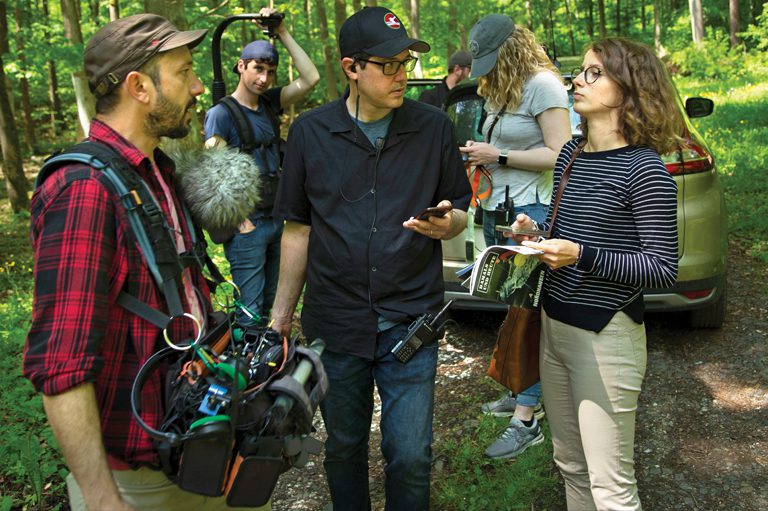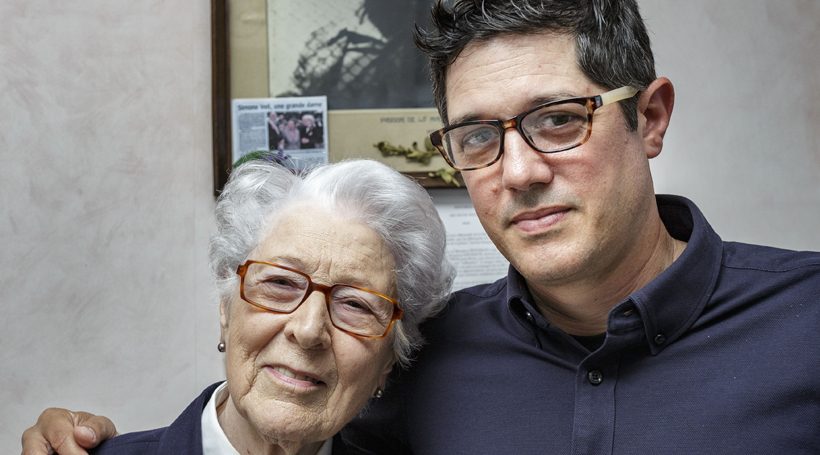Photo: D.R. Heidinger
Growing up in the ’80s in Edgewater Park, Anthony Giacchino and his friends imagined they were the kids in Steven Spielberg’s “E.T.,” riding their bicycles around the neighborhood as the heroes of the iconic film.
Little did he know he would go from imagining himself in the movies to standing on stage in front of some of Hollywood’s biggest stars – with an Oscar in hand.
But there he was, accepting the Academy Award for Best Documentary Short Subject for “Colette,” the story of then-90-year-old Colette Marin-Catherine, a former French Resistance fighter who visits the concentration camp where the Nazis killed her brother. In the film, she is accompanied by 17-year-old history student Lucie Fouble, who had unearthed details about her brother’s fate.
“It was amazing,” says Giacchino, 51. “It was incredible. I can’t say I really expected to win. You had to sort of expect it wasn’t going to happen, just so you can feel better if you lose.”
Everything about the project was out of the ordinary. To start, Facebook and video game maker Electronic Arts (EA) – companies you wouldn’t think about in relation to film – co-produced the film and earned their first Oscars.
And even more extraordinary was how it evolved from a video game project. In 2016 Giacchino received a call from executive producer Peter Hirschmann, who said EA was reviving the “Medal of Honor” franchise, originally developed by Spielberg’s DreamWorks Interactive, and wanted brief true-life stories based on conversations with World War II veterans. The stories would be released in tandem with the video game.
Giacchino went to Europe to scout war stories when someone told him of a woman who had been in the French Resistance. He first met Colette in April 2018. She told him not only her story but that of her brother Jean-Pierre. He fought in the Resistance with her, was arrested by the Gestapo in 1943, and eventually perished in a concentration camp called Dora-Mittelbau. Twenty thousand – 1 of every 3 who entered its gates – died there.
“She was an amazing character, still a fighter for sure,” Giacchino says.

Anthony Giacchino (center) filmed his Oscar award-winning film in Europe
A strange coincidence convinced Giacchino he was on to something. As part of his research, he had visited Dora-Mittelbau 3 days before he learned of Colette. It turned out Colette, now 92, had never visited the camp and vowed never to do so. Yet Giacchino set the trip as his goal, certain it would make the film more powerful.
Then came a second serendipitous tip. A French museum was doing a project to catalog the fate of all France’s 9,000 deportees to Dora-Mittelbau. That’s where the crew met Lucie, who at 17 was the same age as Jean-Pierre when he was arrested. After numerous discussions, Colette agreed to go to the camp with Lucie, who had found more details of Jean-Pierre’s story.
“It was 6 months of talking, and it was also figuring out what would be meaningful for Colette, why would she want to do it,” Giacchino says. “She settled on that she wanted to pay tribute to her brother. She eventually came to trust us that we were going to do the right thing, that we weren’t interested in just an interview and that was it.”
When he returned home with the footage, he told Hirschmann it was the most emotional thing he had ever filmed, even though his first documentary was “The Camden 28,” the story of a famous trial of anti-Vietnam War protesters.
Seeing the film’s potential, Giacchino kept asking for more leeway, whether it was to extend the documentary’s length or to enter film festivals. EA agreed every time. When Colette won at BIG SKY Documentary Film Festival in Montana, qualifying them for an Oscar, the momentum built. Suddenly, waiting for the game to come out to release the film made no sense. The 25-minute film was released online by the British Guardian newspaper.
Critics seized on the fact that the visit to Dora-Mittelbau was manufactured rather than something occurring naturally. But the reactions, tears and the friendship shared by Colette and Lucie were real, Giacchino says. “The first time they met was the first time you see it on the film. There was no guarantee it was going to work. No one would’ve known how close they would become or how emotional it was going to be.”
Giacchino doesn’t know what will come next after his magical Oscar night. All he knows is the headiness of the win won’t send him veering off in other directions seeking glory, but that the Academy Award clearly will open doors.
“I would not be happy,” he says, “if I wasn’t making some documentary film.”














